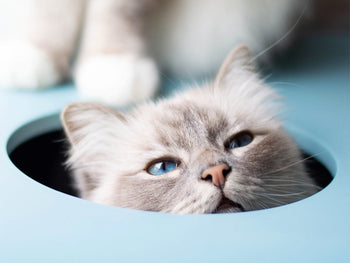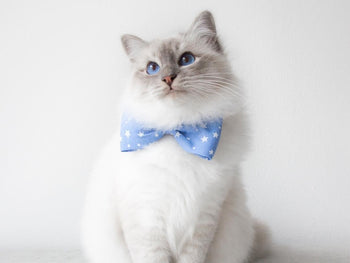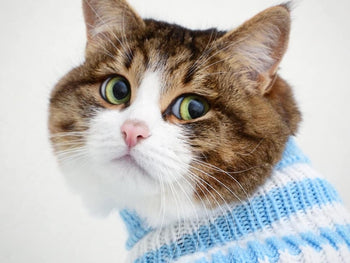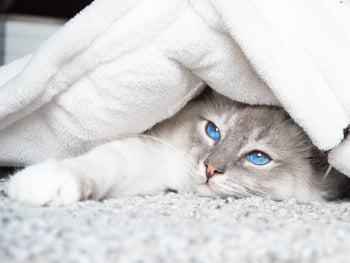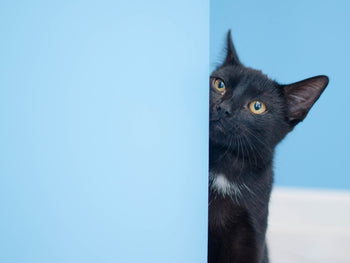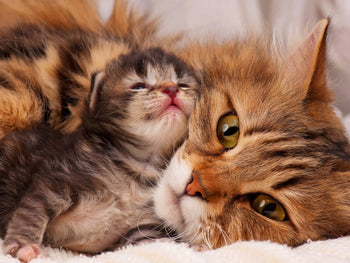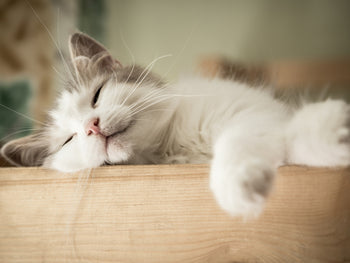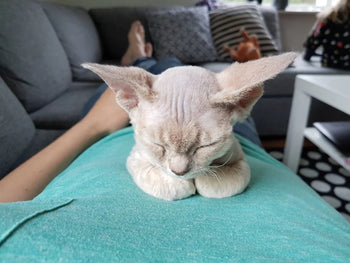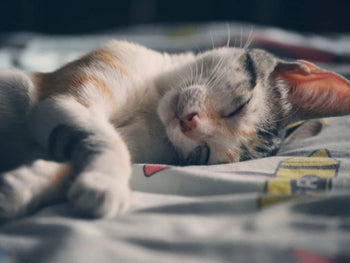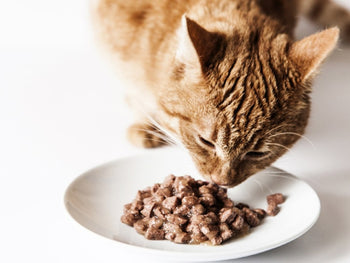You must once or twice notice your cat keeps licking lips and simply think that he is hungry or has dry lips. However, this may be a signal of stress or sick feeling that your companion is going through. In this case, a visit to a veterinary clinic is of urgent need.
As a long-term intimate friend of human beings, cats have various adorable behavior and habits, but not all of them are normal. In some cases, their traits indicate something wrong or abnormal to their body. Cats’ licking their lips is no exception. Understanding why your cat keeps licking lips is an essential way to take better care of your furry friend. Go on reading to find out possible causes and treatment.
Cats’ tongue
If your cat has ever licked you, you will find out his sand-paper like texture. There are tiny backward-facing bits on his tongue, which are also known as papillae. These rough bits act as hooks to conduct several necessary functions such as grooming or pulling meat off bones.
However, everything that your cat collects on his tongue, including dirt, loose hair, and debris, is held by these papillae and swallowed before ending up in hairballs in his stomach.
In the meantime, if there is a foreign body on your cat’s mouth such as a piece of string, he is almost unable to spit out and remove it.
Cat keeps licking lips now and again
In this case, there is no need to worry. Cats’ smashing lips after eating is a natural habit of this species to groom themselves. They use their tongue to groom from their lips to the rest of the body.
As a hunter, cats tend to remove any sign of blood or food to stay away from more significant predators since the hunter becomes the hunted.
Cat keeps licking lips too frequently
Ptyalism
If your feline friend smacks his lips all the time without signs of stop, then he could be suffering from ptyalism. This phenomenon happens when his mouth generates too much saliva, leading to other health problems. Ptyalism can result in nausea in cats. If you sense that your cat is feeling nauseous, think about this cause. Lip licking will become worse when cats throw up and feel nauseous all the time.
Other symptoms of ptyalism include cats rejecting food or unable to control the amount of saliva in their mouth. Ptyalism can stem from kidney-related issues, in which the body produces excessively saliva beyond the handling capacity of the mouth.
Other causes
- Tooth decay
- Mouth diseases
- Oral cancer
- Respiratory condition
- Foreign body or strange items
- Poisoning
- Rabies
- Medication allergy
- Nausea
Treatment
Since ptyalism won’t gradually disappear but increase with time, keep a close eye on your cat and provide him with instantly proper care if needed. A visit to the vet clinic would be the best solution. The vet tends to assess his overall health, carry out a comprehensive oral examination of your cat’s mouth and other diagnostic tests if nothing abnormal is found. Based on specific conditions, proper treatment will be applied to your cat.
It is highly recommended that you give your cat regular check-ups so that anything abnormal can soon be detected and prevented. Try to keep poisons such as household cleaning products out of your cat’s reach and vaccinate him against rabies.
Vomiting

Cat vomiting – What’s the cause?
Another factor that makes cats smash their lips can be vomiting. If a cat throws up, it is natural that it will lick its lips. Therefore, its continued act of lip-licking means the high frequency of throwing up. This may be the result of an upset stomach, which often happens after the cat digests something strange like stale food or a hairball.
In addition, vomiting can be followed by a great deal of salivation and swallow that makes your cat ill. Hence, make an appointment with your vet for prompt treatment.
Check us out for further detailed cat's health guide!
Lack of saliva
Like an excessive amount of saliva, a shortage of saliva, known as xerostomia, is likely to cause the same problem. Under the influence of xerostomia, cats’ mouth becomes dry so that they have to lick their lips to compensate for the dryness. Therefore, xerostomia is a potential cause if your cat keeps licking lips too often. You should also notice other symptoms like bad breath, inflamed or infected oral tissues and difficulty chewing and swallowing.
Treatment
In such a case, the solution is rather simple. Make sure your cat takes in an adequate amount of water every day. Pay attention to preparing diets with a high content of water and using specially designed pet mouthwashes on a daily routine. Even after this, if the symptoms haven’t vanished, then it is imperative that you take it to the vet clinic for professional support. The vet may prescribe several doses of the oral solution to ease hurt spots.
Dental problems
Another reason for a cat licking his lips can stem from dental problems. A broken or abscessed tooth or an object stuck in the mouth can also be a source of bothering to your furry friend.
As a cat owner, you should give your cat dental health care on a routine basis to detect and deal with problems instantly.
Nausea
Licking lips may be a symptom of cat nausea besides drooling, retching, heavy breathing, trembling, and restlessness.

Persian cat with veterinarian doctor at a vet clinic
Potential causes of nausea
- Hairballs
- Food allergy
- Infection
- Poisoning
- Parasites
- Stress
- Medication
Treatment
Treatment methods vary among different causes of nausea and the vet’s assessment of your cat’s health condition. However, they all share one thing that the cat should stay hydrated with its food intake being limited.
Considering hairballs are the major source of nausea, it is crucial that you regularly brush its coat to remove loose hairs besides specific therapies. Therefore, they don’t enter its mouth when grooming.
Conclusion
In short, be careful if your cat keeps licking lips. This can be considered a normal habit while grooming but mostly a sign of body distress or illness. It’s time you worry about your feline friend’s health condition and take him to the vet clinic. Otherwise, you can’t control what happens to your lovely companion later on.
If you want to find out more cat tips & facts and cat stuff, visit Cattybox!
